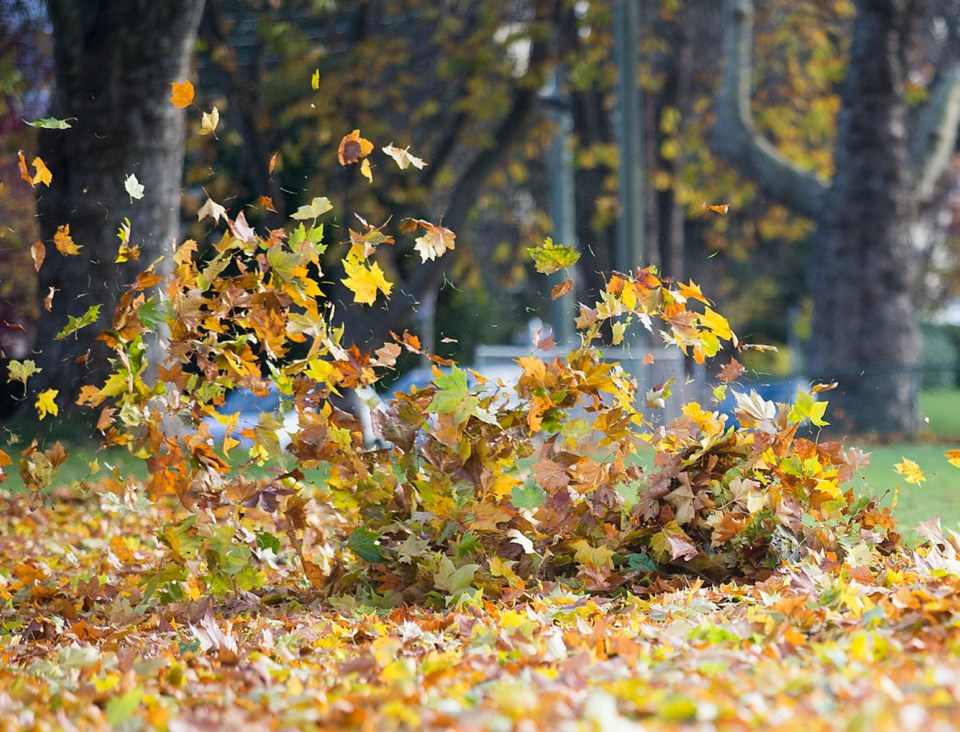Some area residents, it seems, are fed up with the racket made by leaf blowers. Oak Bay Coun. Tara Ney wants the gas-powered version banned. And a petition drive is under way in Saanich asking council to follow suit.
Gas-powered machines can emit as much smog-generating pollution in an hour as a car driving 1,770 kilometres.
Their noise levels reach up to 115 decibels, well above the safe limit set by HealthLink BC. In addition the sound they create has low frequency elements that travel much further than the noise of other small-engine machines like lawn mowers.
There is also the reality that leaf blowers propel large quantities of dust into the air, which can be dangerous for neighbours with allergies or respiratory ailments.
Of course, there is another side to this debate. Professional landscapers point out that electric models, which are far quieter, lack sufficient power to be suitable for their line of work.
Modern urban life is already quite clamorous enough without needlessly making it worse.
As well, numerous studies have found that excessive noise can generate significant health problems, among them sleep disorders.
All of which poses the question, is this a technology we really need? Brooms and rakes may be less efficient, but they don’t intrude upon the peace of the neighbourhood.
That said, this is no simple matter. If a ban were enacted, provisions would have to be made for disposing of the machines. Financial compensation might be required.
And most likely any such prohibition would have to apply only to domestic use. Professional landscapers have no realistic alternative.
There is a related issue. Several municipalities in the region permit winter burning of garden waste.
Yet that is by far the worst time to allow this practice, at least from a pollution point of view. Garden waste at this time of year is invariably soaked.
The smoke emitted by smouldering leaves can blanket an entire street. And here too, there are significant health concerns at stake.
The resulting air pollution often exceeds, at the local level, other forms of pollution we take more seriously.
And as with leaf blowers, there is an alternative available. Dead leaves are a valuable addition to any compost bin, providing a source of future nutrients for the garden.
Some years back, the Capital Regional District commissioned a report on air pollution by experts in the field. That work followed a study of 20 U.S. cities which found that small particulate matter of the sort released by outdoor burning was directly linked to deaths from cardiovascular disease and respiratory ailments.
The CRD report recommended a complete ban on the burning of yard waste, and several municipalities, Victoria, Oak Bay and Saanich among them, followed that advice.
But some did not. Sooke, Langford, Metchosin, Central Saanich and North Saanich still permit outdoor fires during the winter season.
It’s not uncommon, driving north on the Pat Bay Highway through Central Saanich and beyond, to see clouds of smoke enveloping surrounding homes. Wind-blown smoke doesn’t stop at municipal boundaries.
In the end, it comes down to a matter of priorities. Is the peace of the neighbourhood more important than the inconvenience involved in giving up leaf blowers?
Is the health of the neighbourhood important enough to prohibit outdoor burning?
Ideally this is something the provincial Environment Ministry should take up. If we are serious about reducing pollution, noise and smoke should be part of the discussion.
But there is also a message here for individual homeowners. While leaf blowers and garden burning may be more convenient, there are less environmentally harmful options that should at least be considered.



